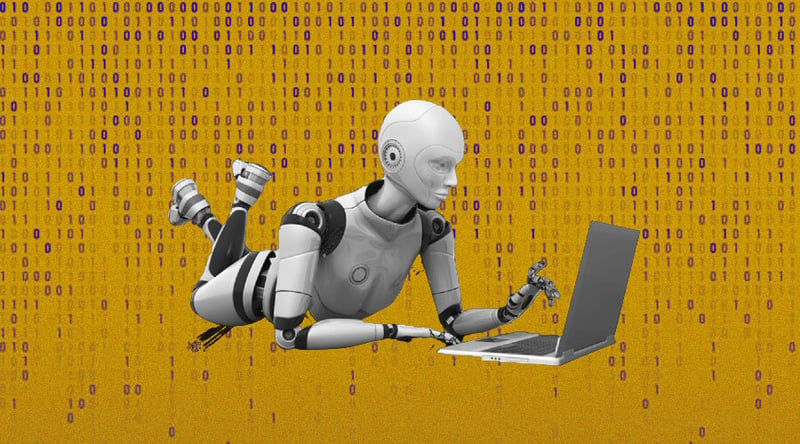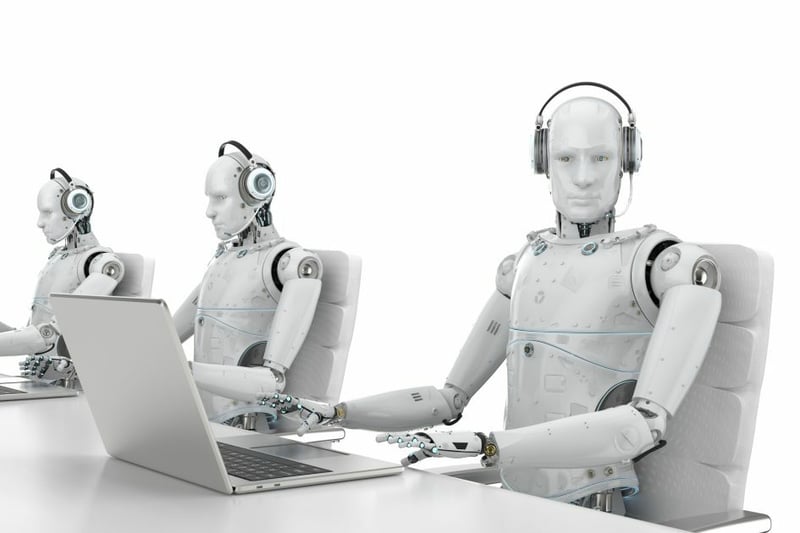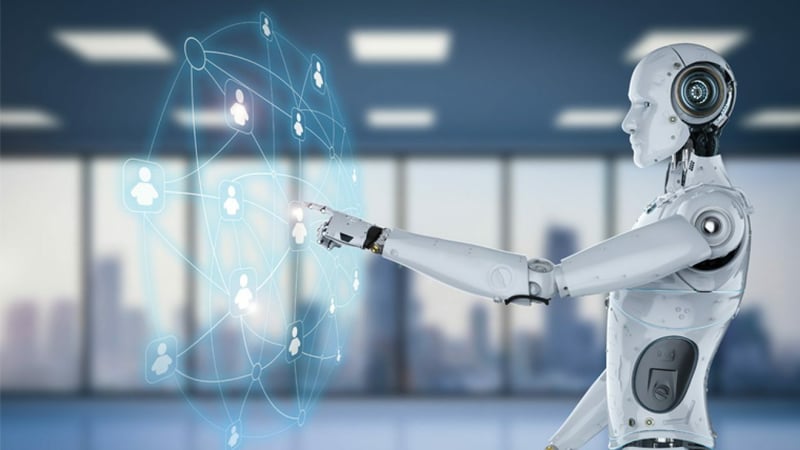In the past decade, we have seen incredible advancements in artificial intelligence (AI). AI technology is now being used to automate processes that were previously completed by humans. This has led many to question whether or not the introduction of AI means the end of the programmer in the new era.
As technology continues to evolve, so too does the concept of artificial intelligence (AI). In recent years, AI has been making leaps and bounds in its capabilities, leaving many to wonder: Is AI the end of the programmer in a new era? In this blog post, we will explore the impact of AI on the programmer and the implications for the future of technology.
What Is Artificial Intelligence?

Artificial intelligence (AI) is a branch of computer science that focuses on creating intelligent machines that can think, learn, and act independently. AI has the potential to revolutionize many aspects of life, from healthcare to finance and even entertainment.
AI technology is advancing at an exponential rate and is being used in a variety of industries, from robotics to online services. While some may fear that AI could replace humans in certain roles, it’s important to understand what AI is and how it could be beneficial to us.
AI involves machines that can mimic human behavior and learn from their environment. AI systems can use deep learning, a type of machine learning, to recognize patterns and make predictions based on data.
This data can be anything from customer information to weather patterns or stock prices. With AI technology, machines can learn how to respond to specific tasks without being explicitly programmed.
AI is already being used in various industries, including healthcare, finance, manufacturing, and transportation. For example, healthcare providers can use AI-enabled software to diagnose illnesses and recommend treatments more quickly than ever before.
In finance, AI algorithms are used to identify patterns and make predictions about the markets. In manufacturing, AI is used to automate production processes and reduce waste.
Though AI technology has great potential for making our lives easier, it also raises the question of whether or not it could eventually replace human workers.
There are those who fear that with the advancement of AI technology, people will no longer have any job security. However, experts believe that this fear is unfounded because AI will simply supplement human labor rather than replace it altogether.
In fact, AI technology could create more job opportunities by automating mundane tasks and freeing up people to focus on more creative endeavors. In addition, AI could help us identify areas of improvement in business processes, allowing companies to become more efficient and profitable.
Ultimately, while there is certainly some risk involved with the advancement of AI technology, its potential benefits far outweigh its potential harms. With proper regulation and oversight, AI could lead to a new era of increased productivity and efficiency without eliminating the need for human labor.
The Impact Of Artificial Intelligence On Programmers

The emergence of artificial intelligence (AI) has been a source of excitement and worry for many people in the tech industry. AI promises to revolutionize our lives by automating mundane tasks, improving decision-making, and providing faster and more accurate results. But, as with any major technological shift, there is also the potential for job displacement. In this blog post, we’ll look at the impact of AI on programmers and how they can prepare for the future.
For many programmers, the potential for job displacement due to AI is a real concern. With the ability to automate tasks, AI has the potential to replace many coding jobs that were once done by humans. For example, natural language processing (NLP) algorithms are capable of generating code based on instructions or requests given to them. This could result in programming jobs being replaced with automated solutions.
But, while AI may pose a threat to some programmer jobs, it is also creating new opportunities in the industry. For example, AI is allowing developers to work on more complex projects such as machine learning and deep learning. These technologies require advanced programming knowledge, making them difficult for machines to replicate. Additionally, AI is being used to develop tools and applications that can help streamline processes, improve user experience, and reduce costs.
While it may be intimidating for some programmers to think about the potential for job displacement due to AI, it is important to remember that the technology is still in its infancy. As AI continues to develop, so too will the opportunities it presents for those with the right skill set. Moreover, by understanding how AI works and what it can do, programmers can use their expertise to develop innovative applications that make use of its capabilities.
In conclusion, artificial intelligence has the potential to significantly impact the role of programmers in the future. While it may pose a threat to certain coding jobs, it also presents exciting opportunities for those who are willing to embrace its possibilities. By understanding its capabilities and developing the right skillsets, programmers can remain relevant and thrive in this new era.
The Future Of Programmers

With the rise of artificial intelligence, many people have been asking whether programmers are in danger of becoming obsolete. This is a valid concern, as AI technology has already begun to replace many manual labor-intensive tasks, from manufacturing to customer service. However, there are some key distinctions between the two that may help us understand the future of programmers in the age of AI.
For one, programming requires creativity and problem-solving skills that are difficult for AI to replicate. AI is primarily used for automating repetitive tasks, such as web page design or data analysis. However, writing code requires an intimate understanding of programming languages, logic, and algorithms. It requires an ability to think outside the box and come up with creative solutions to problems. For this reason, programming will likely remain a human-driven endeavor for years to come.
Furthermore, AI is still largely limited by its lack of contextual understanding. Artificial intelligence is unable to make the same complex decisions as humans, due to its inability to comprehend nuances such as cultural and ethical implications. This limits its use to specific tasks and applications, meaning that more complex programming will still require human input.
In conclusion, it appears that artificial intelligence is not likely to end the programmer’s career anytime soon. While AI may be able to automate certain tasks, the need for creative problem-solving and complex decision-making will keep programmers in demand for the foreseeable future. As technology develops, the role of the programmer may shift and evolve; however, their importance will continue to remain unchanged.
In A Nutshell…
The answer to the question of whether artificial intelligence is the end of the programmer in the new era is a resounding no. While AI does have the potential to change the role of the programmer, it also has the potential to open up new opportunities for them.
AI can automate mundane tasks and help developers to focus their efforts on more complex tasks, making them more productive and efficient. At the same time, AI can also create new opportunities for programmers by allowing them to build more sophisticated algorithms and develop new products.
Overall, AI has the potential to revolutionize the way software is created, but it doesn’t mean that programmers are obsolete. They still have a critical role to play in developing applications and ensuring that they are secure and reliable. AI may be a disruptive technology, but it can also open up new doors for programmers and provide them with exciting opportunities for growth.



Top comments (0)